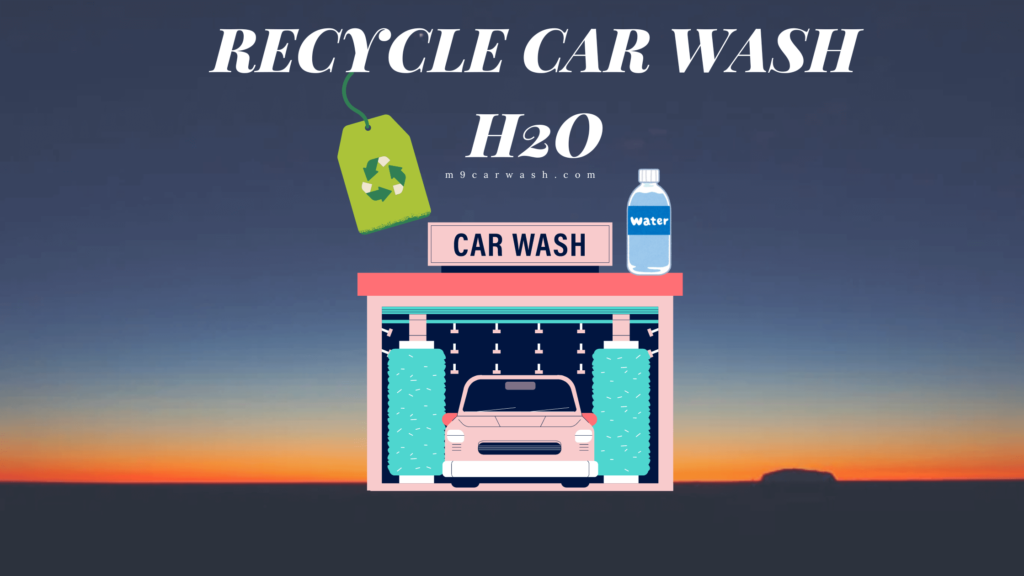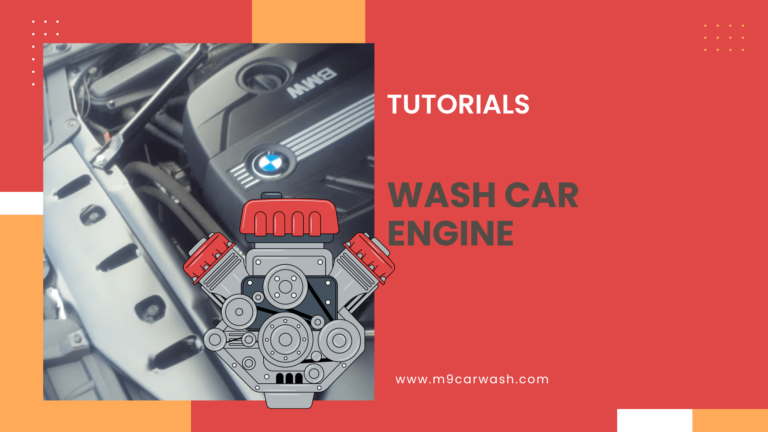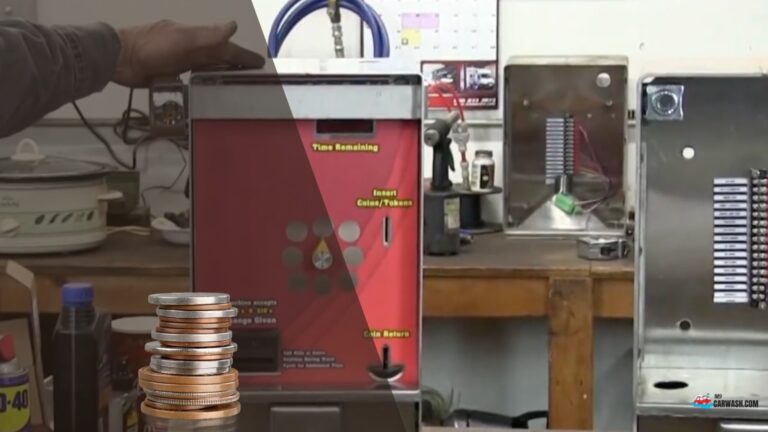Yes, many modern car washes recycle water. First, it collects the used water after washing cars. This water goes through filtration to remove dirt and debris. Next, it is treated to eliminate chemicals and odors, making it safe for reuse in the washing process. Up to 90% of this water can be reused.
| Water Quality | pH Value | Safe for Car Wash | Recycling Cycles | Description |
|---|---|---|---|---|
| High Quality | 7.0 – 8.0 | Yes | 10-15 cycles | Maintains clarity and low TDS, ideal for most stages. |
| Medium Quality | 6.5 – 8.5 | Yes, with Caution | 6-10 cycles | May require additional filtration to avoid spots. |
| Low Quality | 6.0 – 9.0 | Limited Use | 3-5 cycles | Suitable only for pre-rinse; risk of streaks/spots. |
| Poor Quality | <6.0 or >9.0 | No | 1-2 cycles | Risk of damaging car surfaces; requires treatment. |
| Unusable Quality | N/A | No | 0 | Water too contaminated; must be discharged. |
Notes:
- pH Value: A neutral pH (7.0) is ideal; deviations should be monitored closely.
- Recycling Cycles: The number of cycles depends on the efficiency of the recycling system and the level of contaminants.
- Water Quality Monitoring: Regular testing is crucial to determine when water has become too contaminated for further recycling.
- Treatment: Water can often be treated to extend its usability, but poor-quality water may require discharge according to environmental regulations.

How Do Car Washes Recycle Water?
Here’s how the process works:
- Collection: Used water drains into a collection system, typically a series of underground tanks.
- Filtration: The water passes through filters to remove debris, dirt, and contaminants.
- Separation: Oil and grease are separated from the water using oil-water separators.
- Treatment: The water undergoes chemical treatment or biological processes to remove remaining impurities.
- Storage: The treated water is stored in a tank for reuse in the car wash, particularly for the initial rinse stages.
This process helps maintain water quality, ensuring that cars are washed with clean water.
Recycling systems also reduce dependence on the municipal water supply, promoting water conservation.
Benefits of Recycled Water Use
Using recycled water in car washes has several advantages:
- Environmental Impact: Conserving water reduces the strain on local water sources. It also minimizes wastewater that could negatively affect the environment.
- Cost Savings: Car washes can save 50-80% on water costs by recycling. This efficiency can lead to lower prices for customers.
- Regulatory Compliance: Many areas have regulations promoting water conservation, making recycling systems not just beneficial but necessary.
- Quality Performance: Modern treatments ensure that recycled water does not compromise wash quality, maintaining customer satisfaction.
Do Recycling Water Reducing Costs?
Car washes that recycle water play a significant role in conserving fresh water.
On average, a standard car wash uses about 30 gallons of water per vehicle, while eco-friendly systems can reduce that usage dramatically by recycling up to 90%.
This means less fresh water is taken from local supplies.
Using less water also lowers water and sewer costs for both the car wash and customers.
When washes filter and reuse water, they minimize the amount of polluted water entering the sewer systems. This can lead to lower treatment costs for municipalities, making operations more economical for everyone involved.
Local and Federal Regulations on Recycling Water for Car Wash
Both local and federal regulations influence how car washes operate concerning water usage and waste management.
For instance, many areas have laws requiring businesses to manage wastewater responsibly. Car washes that recycle water are already a step ahead, as they reduce their environmental footprint.
The Environmental Protection Agency encourages practices that keep water clean and safe.
How Does the Filtration and Water Treatment Work?
Many car washes now use advanced filtration systems to recycle water.
Reverse osmosis is a popular method that removes impurities and bacteria, ensuring the water is clean for reuse. This process filters out suspended solids and improves water quality.
Some systems utilize ozone to disinfect the water, which can neutralize odors and harmful microorganisms.
Also, high-pressure spray techniques are effective in cleaning vehicles while using less water. Each of these innovations contributes to smart water reclamation practices.
Car Wash Equipment and Water Quality
- Clarity: The water should be free of visible debris and suspended particles, achieved through filtration.
- pH Balance: The pH level is usually kept between 6.5 and 8.5 to prevent corrosion or damage to car surfaces.
- TDS (Total Dissolved Solids): Recycled water should have low TDS levels, ideally below 200 ppm, to avoid water spots on vehicles.
- Chemical Composition: Proper treatment ensures that harmful chemicals, oils, and detergents are removed or neutralized, maintaining water quality and preventing streaks or residues.
- Odor Control: Recycled water should be treated to eliminate unpleasant odors, often through aeration or chemical additives.
For example, a tunnel car wash uses a series of high-pressure applications and soft-touch wash systems to clean vehicles effectively.
In-bay services often incorporate these technologies too, ensuring thorough cleaning with minimal water waste.
Proper chemistry is vital to achieving the best results. Using the right soaps and rinses ensures that cars come out clean without harming the equipment or the environment.
I find that the International Carwash Association emphasizes the importance of regular maintenance on filtration systems and services to prolong their effectiveness.
Is there a typical water recycling rate for car wash facilities?
Most car washes recycle about 85% to 90% of the water they use. This high rate shows a commitment to sustainability.
It also means that less fresh water is drawn from local supplies during each wash.
How do mobile car wash systems manage water recycling?
Mobile car washes often use smaller, portable recycling units. These systems filter and treat the used water on-site.
This allows them to reuse water without relying on fixed infrastructure, making them more adaptable and efficient.
But, there are some mobile wash that do not recycle due to lack of equipment or cba.
Are water recycling systems for car washes available for purchase, and if so, at what price?
Yes, water recycling systems are available for purchase. Prices vary widely based on capacity and technology, ranging from a few thousand to tens of thousands of dollars.
Here’s a general list of water recycling systems with their approximate prices:
- PurClean Water Recycling System
- Price: $30,000 – $70,000
- Features: Advanced filtration, chemical treatment, high water recovery rate.
- HydroRecycle System
- Price: $25,000 – $60,000
- Features: Multi-stage filtration, oil-water separation, UV sterilization.
- Aqua Bio Technologies System
- Price: $35,000 – $80,000
- Features: Biological treatment, automated control, high-efficiency filters.
- Riveer Water Filtration and Recycling
- Price: $20,000 – $50,000
- Features: Mobile or stationary units, mechanical filtration, customizable configurations.
- Con-Serv Environmental Equipment System
- Price: $30,000 – $75,000
- Features: Modular design, chemical dosing, low maintenance requirements.
Water recycling practices can vary by region due to local regulations and climate conditions.
For example, in Texas, many car washes focus on recycling due to the state’s frequent droughts.
Compliance with state water conservation laws can also influence how these systems are set up and operated.






